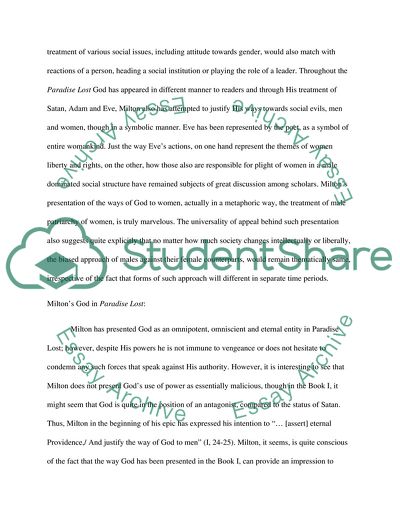Cite this document
(In Paradise Lost, How Does Milton Justify The Ways of God to Women Assignment, n.d.)
In Paradise Lost, How Does Milton Justify The Ways of God to Women Assignment. Retrieved from https://studentshare.org/literature/1737827-in-paradise-lost-how-does-milton-justify-the-ways-of-god-to-women
In Paradise Lost, How Does Milton Justify The Ways of God to Women Assignment. Retrieved from https://studentshare.org/literature/1737827-in-paradise-lost-how-does-milton-justify-the-ways-of-god-to-women
(In Paradise Lost, How Does Milton Justify The Ways of God to Women Assignment)
In Paradise Lost, How Does Milton Justify The Ways of God to Women Assignment. https://studentshare.org/literature/1737827-in-paradise-lost-how-does-milton-justify-the-ways-of-god-to-women.
In Paradise Lost, How Does Milton Justify The Ways of God to Women Assignment. https://studentshare.org/literature/1737827-in-paradise-lost-how-does-milton-justify-the-ways-of-god-to-women.
“In Paradise Lost, How Does Milton Justify The Ways of God to Women Assignment”, n.d. https://studentshare.org/literature/1737827-in-paradise-lost-how-does-milton-justify-the-ways-of-god-to-women.


